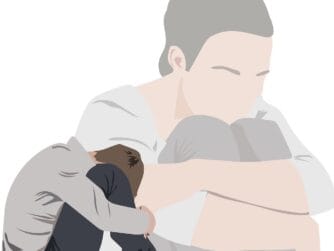Voice 1
Welcome to Spotlight. I’m Roger Basick.
Voice 2
And I’m Marina Santee. Spotlight uses a special English method of broadcasting. It is easier for people to understand, no matter where in the world they live.
Click here to follow along with this program on YouTube.
Voice 1
He sinks into a wheelchair. His fingers are bent and strange. No one can understand his speech. It sounds like he is mumbling. He needs help wiping his face. His hands and arms do not work properly. He looks frustrated and confused. He seems helpless. Is he stupid? Is he mentally challenged? No, he is not. He is intelligent. He makes good decisions. He just has cerebral palsy.
Voice 2
Today’s Spotlight is on cerebral palsy, or CP. We examine what is involved in the condition. We explore incorrect views about the mental abilities of people with CP. We discuss false judgments about those with the disorder. We learn about several people living amazing lives with CP.
Voice 1
Certain areas of the human brain control muscle movement. A person may develop cerebral palsy when these areas do not grow properly. Brain damage also causes cerebral palsy. These problems usually happen during the child’s development in the womb or during the process of childbirth. Sometimes it happens during the first few years of a child’s life. The brain damage causes a child to learn some things more slowly. It is harder for him to learn to roll over, crawl, or walk. Cerebral palsy might cause a child to use one side of his body more than the other. He may not be able to control his movements. His arms could be softer or stiffer than normal.
Voice 2
There is no cure for cerebral palsy. Certain operations and medicine can sometimes help. But nothing completely heals it. Forty to fifty percent of people with CP must use a wheelchair. Some of these people can walk, but not for long distances. One out of three people with CP cannot walk at all.
Voice 1
People with CP have different needs. Some need help twenty-four hours a day. They may need help even at night. Their physical restrictions do not allow them to care for themselves. Others must hire caregivers to help them for certain hours a day. Some need much less help. But help often costs a lot. The average lifetime cost of care for someone with cerebral palsy is between one and five million US dollars. In some countries people with CP qualify for government help. But often they must raise extra money. Or they ask their families for help.
Voice 2
Forty percent of people with cerebral palsy have some sort of mental problem. This problem could be trouble talking. It may be a short attention span. Sometimes it is anxiety or anger. It also may be a learning difficulty.
Voice 1
These difficulties do not mean that a person with CP is not smart. It just means that she needs help and patience. It is important for caregivers or family members who help people with CP not to try to think for them. People with CP want their needs met. They need their desires to be heard. They do not want to be told what to do. They do not need someone to control their lives. They just need help because their bodies do not work under their complete control.
Voice 2
For Richard Herrin of Fort Worth, Texas, the worst part of having cerebral palsy is feeling helpless. Richard was born with cerebral palsy. Throughout his life, many people mistakenly thought that he could not think for himself. His parents even put him in a mental hospital when he was young. They thought he was mentally challenged.
Voice 1
As an adult, Richard has caregivers work for him. His caregivers operate a lift attached to his ceiling that pulls him out of bed. The lift picks him up and places him in his wheelchair. His caregivers help him get dressed. They help him make phone calls and write emails. They drive him to meetings. But the one thing they can never do is speak for Richard. He is the boss. When he speaks with someone else, the caregiver can only help make his speech clear. Richard’s speech is harder to understand because of his CP. He even hangs a sign on his wheelchair that reads “I AM NOT DRUNK.” Listeners must be patient when he speaks.
Voice 2
Richard was once at a dentist’s office to care for his teeth. It was taking a long time for the woman making appointments to understand Richard. His caregiver was not patient. The caregiver finally told her to make the appointment for next Thursday. This is not what Richard said or wanted. He was very upset. Together, they left the dentist’s office.
Voice 1
Richard yelled at his caregiver in front of everyone.
“Am I stupid?!”
Richard screamed.
Voice 2
“Of course you are not,”
his caregiver said.
“I was just trying to speed things up.”
Voice 1
Richard stared at his caregiver for a moment. He wanted to make sure he was listening. Then Richard said,
“I decide when to speed up. I decide when to slow down. I am the boss.”
Voice 2
Richard has fired several caregivers for this type of mistake. He takes it very seriously. His cerebral palsy limits many of his physical abilities. He needs help with daily tasks that others do not. The one area which he controls is thinking and making decisions. When someone tries to think and speak for him, he does not tolerate it. He feels overlooked and insignificant. He feels like everyone assumes he is not smart.
Voice 1
Richard earned his bachelor’s degree in college. Then he earned his master’s degree. He became a Christian minister. He got married and started a family. He is very smart and capable. He just needs people to be patient with his slower speaking skills.
Voice 2
Afia Kabir Anila was born with cerebral palsy in Dhaka, Bangladesh. Schools would not accept her because of her CP. Several schools rejected her. They thought that other students could get cerebral palsy from her as if CP was an infectious disease. One school finally accepted her. She attended in her wheelchair. She worked hard, but communication was difficult. Anila said:
Voice 3
“I attended the school regularly. But I cannot write and stand. Many times at school people cannot understand me. I have a woman who writes for me. But often she does not understand. I have to spell out the words.”
Voice 1
When she was fourteen, Anila went to an international gathering in Goa, India. The gathering was about disabilities. 200 people from around the world attended. Anila was the youngest person there. Anila impressed everyone with a ten-minute speech. In her speech, she said:
Voice 3
“It is painful when I go to the market and people stare. I am not included in schools. I have seen my mother cry so many times because of this.”
Voice 2
Today, Anila studies law at North South University. She fights for the rights of disabled people. She gives speeches that move others. Anila, like Richard and others with cerebral palsy, has goals and courage. They have dreams. They just need a little help reaching them. But, most of all, they need to be listened to. They need the world to see more than their wheelchairs.
Voice 1
Do you know anyone with cerebral palsy? Is there some kind of challenge in your life that you are trying to overcome? You can leave a comment on our website at www.spotlightenglish.com. You can also find us on YouTube, Facebook, TikTok, Bluesky and X. You can also get our programs delivered directly to your Android or Apple device through our free official Spotlight English app.
Voice 2
The writer of this program was Peter Anderson. The producer was Michio Ozaki. The voices you heard were from the United States and the United Kingdom. All quotes were adapted for this program and voiced by Spotlight. This program is called, “I AM NOT DRUNK.”
Voice 1
We hope you can join us again for the next Spotlight program.
Goodbye.
Question:
Do you know anyone with cerebral palsy? Is there some kind of challenge in your life that you are trying to overcome?








I’m want speech English
I am Severino Ramos, I am from Brazil, and I live in São Paulo City
Dear Roger Basick, Marina Santee, Peter Anderson, and Michio Ozaki
How are things with you?
I AM NOT DRUNK!
Question 1 – Do you know anyone with cerebral palsy?
Yes, I do.
At the hospital where I work as a nurse, there are a few children and a few adults who suffer from that terrible disease.
So regularly, they come to the hospital for treatments in their wheelchair. So, I usually see one, two, or three of them in their wheelchair at the neurological outpatient clinic waiting for the doctor’s appointment.
Question 2 – Is there some kind of challenge in your life that you are trying to overcome?
No, there is not.
But I tell you that if I had a baby who had cerebral palsy, I would prefer that the child be euthanized.
So I get very sad when I see the patients in that situation.
Disabilities are not easy for caregivers, patients, and parents to deal with.
Stay with God
I appreciate it
Severino Ramos
Hello,
I don’t know anyone with CP, but sadly there is a truth, we usually mistakenly think this people are limited in all aspects and it’s not that way, we must learn a little bit more about this kind of condititon, that way we’ll be able to understand how they can manage each situation.